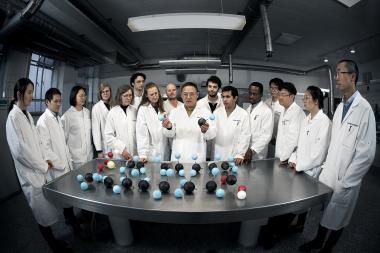Archroma: New bio-based durable water repellent finish
Archroma has introduced a new bio-based durable water repellent (DWR) finish that helps mills and brands produce apparel that is soft to the touch and yet offers robust rain and stain protection and an improved sustainability profile.
PHOBOTEX® NTR-50 LIQ is designed to provide great water repellence on all kinds of fibers while achieving a soft handle and avoiding undesired effects like yellowing and chalk marking. It performs especially well on synthetic fibers and their blends, making it ideal for apparel, outdoor wear and home textiles.
The new DWR is based on 50% renewable carbon content based on ASTM D6866 and is free of per- and polyfluoroalkyl substances (PFAS) and formaldehyde. It is also crosslinker-free, which makes it more flexible in use. While offering good wash durability on its own, PHOBOTEX® NTR-50 LIQ can be combined with a crosslinker like ARKOPHOB® NTR-40, which has a biocarbon content of 40%, to further boost wash and/or dry-cleaning resistance.
Sportswear, fashion and home textiles treated with the PHOBOTEX® NTR-50 LIQ durable water repellent qualify for the High IQ® Repel assurance program. The High IQ® program assures consumers that these products deliver performance, protection and comfort and meet strict environmental standards.
Archroma










